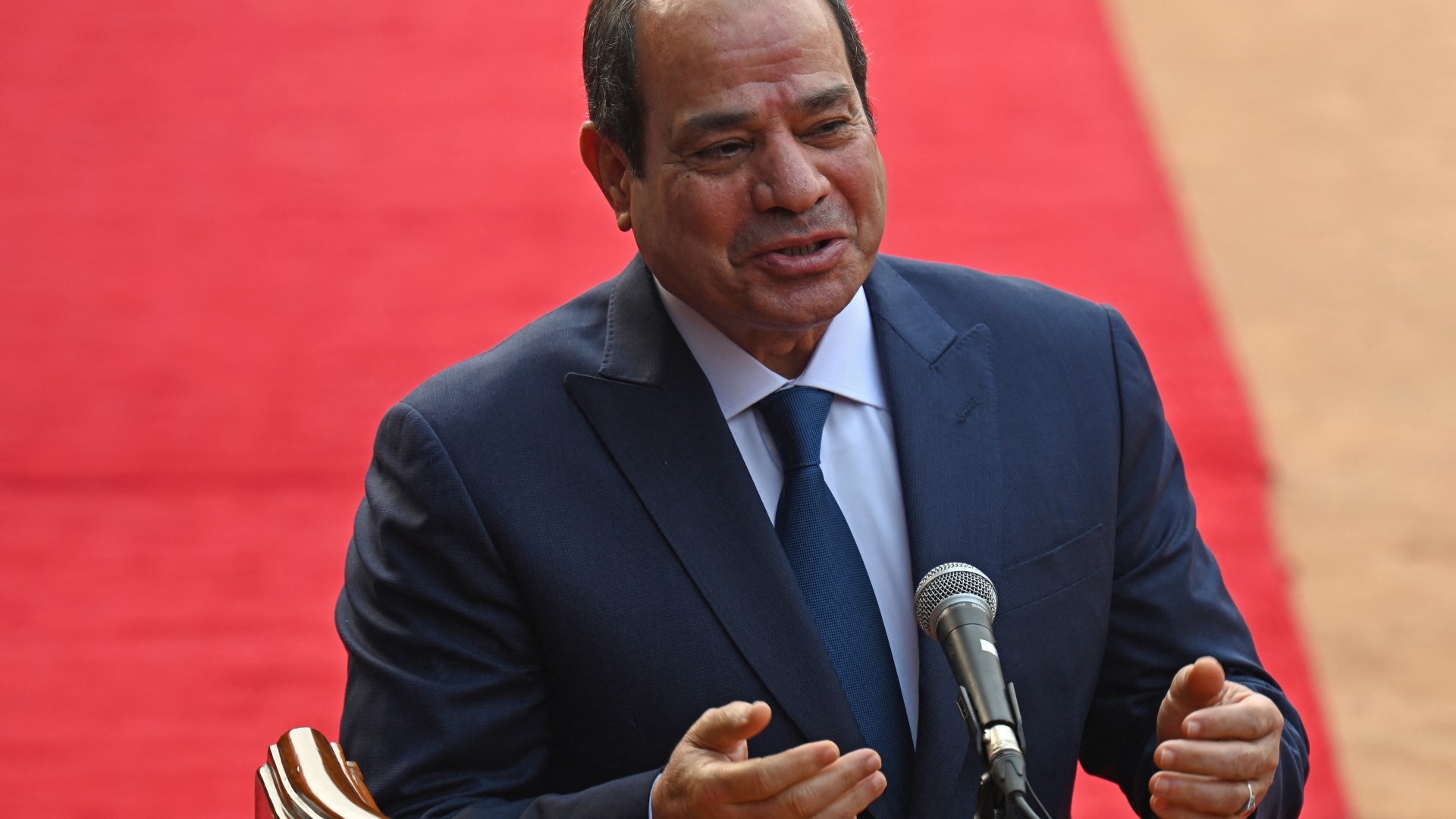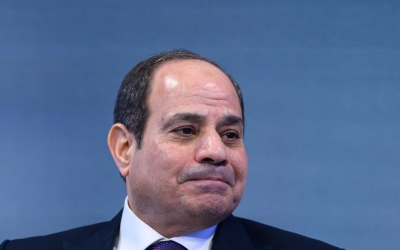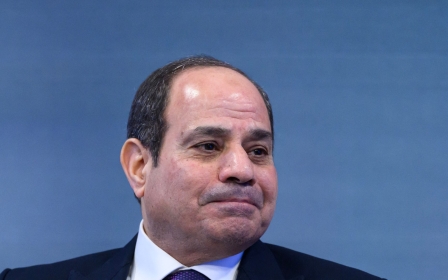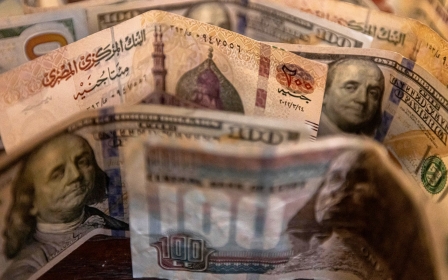Egypt: Loosening the army's grip on the economy could help save it

A glance at the widely accepted indicators reveals that the Egyptian economy has structural issues, starting with a modest gross domestic product - unfit for such a large nation with vast natural and human resources - and a per capita income that is declining due to high inflation.
However, the biggest problem the country currently faces is the deterioration of its currency exchange rate against the US dollar and other major currencies. In one year, the Egyptian pound has declined by more than 50 percent, leading to income erosion and an increase in poverty in Egypt.
While some may blame the country's economic downturn on the government's privatisation drive or other temporary causes, such a focus is nothing more than a diversion.
Let's all agree that privatisation was followed and furthered in the capitalist West as an economic approach. The private sector's grip over the hubs of economic activity in a nation is highly responsible for the economic growth we observe today in developed countries. This is evident in the higher rate of creativity, whether in inventions, lowering production costs, opening markets or other advantages that central authority does not possess.
New MEE newsletter: Jerusalem Dispatch
Sign up to get the latest insights and analysis on Israel-Palestine, alongside Turkey Unpacked and other MEE newsletters
The failure of the Egyptian economy is therefore not the result of such measures but of the Egyptian armed forces' control over it.
Economic harm
The Egyptian army's interference in the economy dates back to 1956 following the nationalisation of the Suez Canal, which it was tasked to manage. The army then began to engage in business activities, such as manufacturing weapons and military equipment. Today, the armed forces manage hotels, entertainment venues, dairy factories, and the considerable contracting sector. For more than 70 years, this management pattern has remained unchanged in Egypt.
Due to mismanagement in the army companies, Egyptian exports were unable to compete in global markets
The tremendous harm caused by the military's control over the economy continues today.
A few examples include the weak or total lack of competition in the local market due to the tax exemptions enjoyed by the army, which also receives preferential treatment in securing government contracts and tenders.
In addition, corruption has permeated companies owned and run by the army due to weak or even absent oversight from the legislative authorities. Due to mismanagement and the lack of creativity and development in the army companies, Egyptian exports were unable to compete in global markets. As a result, the economy suffered from a chronic deficit in the trade balance as the gap widened between imports and exports.
This debt was covered thanks to the tourism industry, which injects billions of dollars worth of foreign currency into the economy each year. Expatriate Egyptian workers have further kept the economy afloat by contributing tens of billions of dollars to the country each year, particularly those working in the Gulf states.
The Suez Canal, which earned a record high revenue of $7bn in the last fiscal year, also rakes in enormous sums of money annually.
These three sectors were primarily responsible for covering a sizeable portion of the ongoing balance of payments deficit brought on by the trade deficit. The Egyptian administration has always accepted and normalised these policies and has made no real effort to improve or expand its meagre exports.
The bubble 'burst'
Beginning with the Covid-19 pandemic and the ensuing closure and suspension of travel, income eroded from the major sectors - tourism and expatriate remittances - and even the Suez Canal's revenue fell as a result of the initial decline in global trade.
The Russia-Ukraine war, which followed the global shutdown, also contributed to the spike in food costs, particularly for grains and vegetable oils. Egypt is the world's top importer of wheat for food, which caused a greater depletion of foreign currencies. Oil and gas sales revenues also decreased in this environment.
The global pandemic finally led Egypt's Central Bank to fail - exposing its strategy as short-sighted and flawed - as the balance of payments deficit continued to worsen.
The Egyptian pound's exchange rate with the US dollar and other major currencies was kept stable at that time by the Central Bank using its remaining foreign currency reserves to purchase the Egyptian pound on the open market.
In fact, from June 2020 to March 2022, the Egyptian pound was able to retain its exchange rate, but unhappily at the expense of the country's critical foreign currency reserve balance.
Following the depletion of its foreign exchange reserves, the Central Bank put pressure on foreign importers by requiring a letter of credit and approval process for all import requests.
This placed undue pressure on the industrial sector in terms of the severe shortage of raw materials and spare parts that devastated the export sector and widened the balance of payments imbalance.
The bubble burst and the value of the Egyptian pound decreased by more than 50 percent between March 2022 and the time of writing as a result of all these poor conditions and management.
Possible solutions
Given the current situation, the Egyptian government has very few options, which is why it looks to wealthy neighbours in the Gulf and Saudi Arabia, which have stated on several occasions that they will no longer give blank cheques.
The Gulf countries have just begun to follow the strategy of the International Monetary Fund (IMF) and have grown closer to the international lender. They pushed Egypt to accept the IMF's offer and made demands of the government, including in areas of privatisation.
The Gulf states are willing to provide billions of dollars in investments with conditions, the most important of which is to devalue the Egyptian pound, while loosening the army's and government's control over the economy.
The conditions are similar to those established by the IMF and which the Egyptian government was slow to implement after agreeing to a $3bn loan in early 2022.
Egypt is currently under pressure to make difficult decisions. These decisions anger the people, who believe that selling the state's capabilities amounts to a surrender of its sovereignty. However, they also undermine the interests of the Egyptian armed forces, which serve as the regime's major supporters.
When viewed objectively, the sale of some significant businesses to the Gulf does not necessarily go against the interests of the general population. On the contrary, it solves a 70-year-old issue while the new private-sector management increases the chances of competition for Egyptian goods on the international market.
A final key advantage is that the government will no longer worry about giving Egyptian army corporations exemptions and preferential treatment. This will result in tens of billions of dollars in revenue from those businesses and help reduce the government's budget deficit.
The views expressed in this article belong to the author and do not necessarily reflect the editorial policy of Middle East Eye.
Middle East Eye delivers independent and unrivalled coverage and analysis of the Middle East, North Africa and beyond. To learn more about republishing this content and the associated fees, please fill out this form. More about MEE can be found here.






